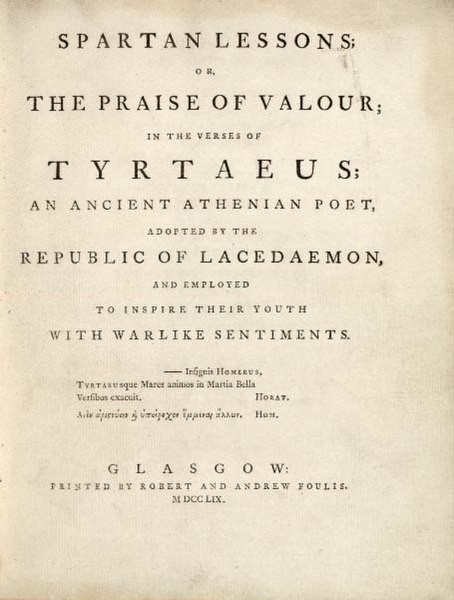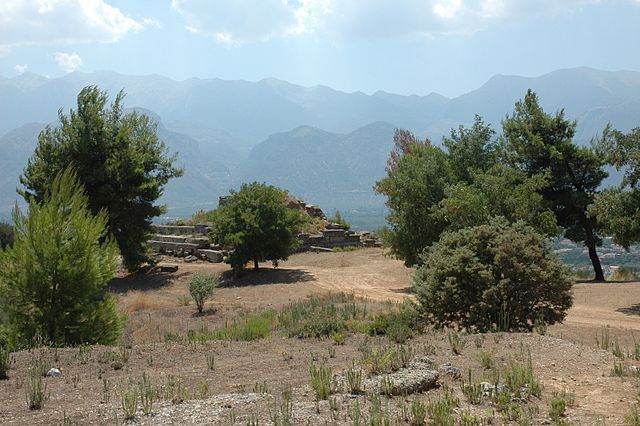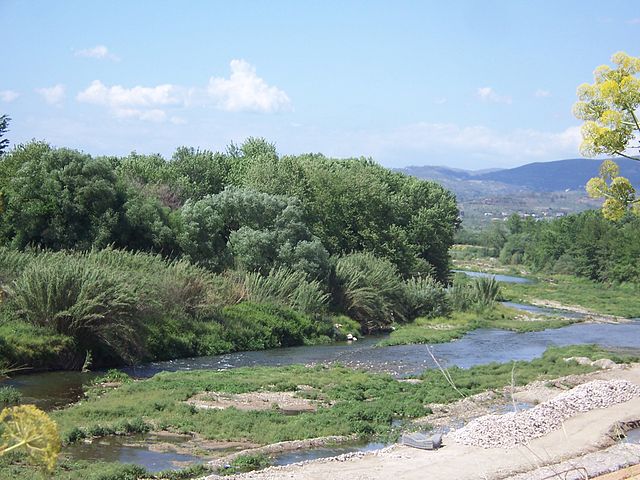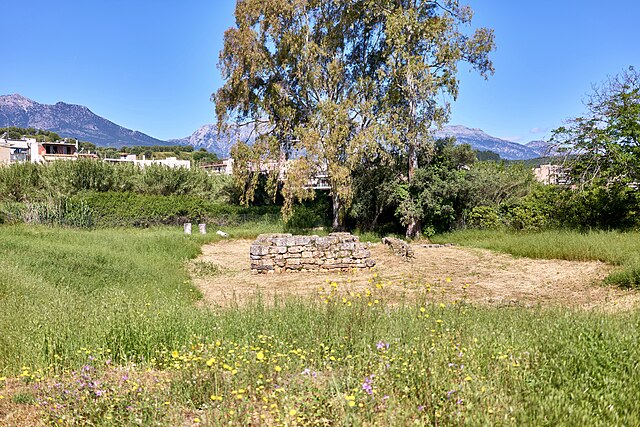Tyrtaeus was a Greek elegiac poet from Sparta whose works were speculated to fill five books. His works survive from quotations and papyri, and include 250 lines or parts of lines. He wrote at a time of two crises affecting the city: a civic unrest threatening the authority of kings and elders, later recalled in a poem named Eunomia, where he reminded citizens to respect the divine and constitutional roles of kings, council, and demos; and the Second Messenian War, during which he served as a sort of "state poet", exhorting Spartans to fight to the death for their city. In the 4th century BC, when Tyrtaeus was an established classic, Spartan armies on campaign were made to listen to his poetry. The Suda states that he wrote martial songs; these were important in Spartan festivals and were done through anapaestic and iambic chants that accompanied armed dances and processions.
Gustave Moreau, "Tyrtée"
Bronze Spartan shield captured by Athenian soldiers at the Battle of Pylos in 425 BCE and now stored in the Ancient Agora Museum.
Spartan swordsman in bronze, applique. Originally part of a relief decorating a piece of furniture, 550–25 BCE.
Tyrtaeus Spartan Lessons; Glasgow: Robert and Andrew Foulis, 1759 (title-page)
Sparta was a prominent city-state in Laconia in ancient Greece. In antiquity, the city-state was known as Lacedaemon, while the name Sparta referred to its main settlement on the banks of the Eurotas River in the Eurotas valley of Laconia, in south-eastern Peloponnese. Around 650 BC, it rose to become the dominant military land-power in ancient Greece.
Hollow Lacedaemon. Site of the Menelaion, the ancient shrine to Helen and Menelaus constructed in the Bronze Age city that stood on the hill of Therapne on the left bank of the Eurotas River overlooking the future site of Dorian Sparta. Across the valley the successive ridges of Mount Taygetus are in evidence.
Eurotas River
The theater of ancient Sparta with Mt. Taygetus in the background.
Ruins of the Temple of Artemis Orthia








